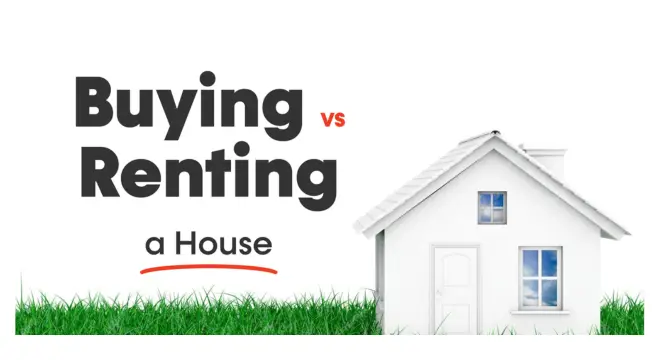Master the Art of Negotiating Your House Offer: 10 Proven Tactics
Buying a home isn’t just about finding the right property — it’s about playing the negotiation game smartly. I’ve seen deals fall apart because the buyer came in too hot, or too timid, and the seller lost trust. When you negotiate a house offer, you’re not just talking numbers; you’re balancing market facts, psychology, and timing.
In the next few minutes, I’ll walk you through how seasoned agents, data, and even a few human connection tricks can help you land your dream home without overpaying — or losing it to someone sharper. Some of these strategies you’ve probably heard in passing, but others quietly tip the scales in your favor.
So, let’s start with this: if the seller got two offers today — one was yours — why would they choose you?
Understand Market Dynamics: Is It a Buyer’s or Seller’s Market?
Before you and I even start talking numbers, we have to figure out who’s holding the cards right now.
- Buyer’s market: This is where you have the upper hand. Properties are sitting for weeks (or months), sellers are anxious, and you can negotiate harder — maybe even throw in requests like appliance upgrades or closing cost help without scaring them away.
- Seller’s market: Here, competition is intense. Homes get multiple offers within days. You’ll need to focus on making your offer stand out, even if that means being flexible with terms instead of only pushing on price.
I’ve seen smart buyers lose good homes simply because they played the wrong game for the market they were in. That’s why this step isn’t just “nice to know” — it’s critical.
Right now, data from The Scottish Sun shows buyers in the UK are negotiating an average of about 6% below asking price — useful to keep in mind when deciding your first move:
1. Do Your Homework: Research Comparables & Recent Sales
If you walk into a negotiation saying, “I think the house is overpriced”, you sound like just another buyer. But when you walk in saying, “The last three homes on this street sold for $15,000 less than asking”, suddenly, you’re the buyer with facts.
Here’s what I always do before making an offer:
- Check sold prices for similar homes in the last 3–6 months.
- Look at unsold listings — they show where sellers have overshot the market.
- Adjust for differences — a renovated kitchen or extra bedroom can justify a higher price.
- Use multiple sources — public records, property portals, or a trusted agent’s database.
The goal? Turn your gut feeling into undeniable evidence. Once you have that, your offer becomes much harder to dismiss. And if you want to walk into every viewing prepared, it helps to have a checklist of smart house-hunting questions to ask the seller or agent before you even think about making an offer.
2. Power of the Offer Package: Beyond Just Price
One thing I’ve learned: sellers don’t always take the highest offer — they take the offer that feels the safest and easiest to close.

If you want to make your offer irresistible, think about what you can offer beyond just money:
- Earnest money deposit — a solid amount shows you’re serious.
- Minimal contingencies — fewer escape clauses make the seller feel more secure.
- Flexible closing date — match the seller’s ideal timeline if you can.
- Pre-approval letter — shows you’re financially ready to close.
I’ve had offers accepted over higher bids simply because we packaged it better — fewer headaches for the seller meant a faster, cleaner deal. And in real estate, peace of mind is worth a lot of money. If you really want to tip the scales in your favor, consider the advantages of making a cash offer — it can cut through financing delays and make you look like the safest bet in a seller’s eyes.
3. Control Disclosure: Don’t Reveal Your Max Budget or Weaknesses
One thing I’ve learned the hard way — once the seller knows your absolute top budget, you’ve given away your strongest card. Even if you come in lower, they’ll hold firm knowing exactly how far you can stretch.
Here’s how I keep control in negotiations:
- Only share what’s necessary — focus on your offer, not your full financial picture.
- Avoid emotional oversharing — saying “I love this house, I’ll do anything to get it” only weakens your position.
- Let your agent filter information — they can present your offer in a way that keeps you flexible.
The less they know about your ceiling, the more room you have to shape the deal in your favor.
4. Timing Is Key: When to Make Your Move

You and I both know — in real estate, timing can be worth thousands.
- If the home’s been on the market for weeks: The seller might already be worried. This is when a slightly lower but clean offer can hit the sweet spot.
- If it’s new to the market: You may need to come in stronger or risk losing it.
- Post-survey negotiations: Stick to major issues — like roof damage or plumbing problems. Nitpicking over tiny cosmetic flaws often backfires and makes sellers dig in.
I’ve seen buyers get better prices just by waiting an extra week, and I’ve seen others lose homes because they hesitated too long. The trick is reading the room — and the market — before acting.
5. Use Emotional Intelligence: Understand Seller’s Motivation
Negotiating a house offer isn’t just about money — it’s about connecting with what matters most to the seller.
Start by quietly asking your agent why the seller is moving. The answer changes everything:
- Relocating for work? Offer a quick closing.
- Downsizing? Be flexible about move-out timelines.
- Inherited property? A cash offer might mean more to them than squeezing every dollar.
I once had a client win a home over a higher offer simply because they matched the seller’s preferred closing date. People choose people they trust — and in real estate, trust often trumps price.
Here’s a good guide on spotting seller motivations and shaping your offer accordingly.
6. Leverage Personal Connection: The Human Touch Wins
Sometimes the thing that tips the deal in your favor isn’t more money — it’s making the seller feel understood.
I’ve seen buyers win homes over higher offers simply by showing a little empathy. A short, heartfelt letter about why this home matters to you can stick in a seller’s mind more than numbers on paper. Just keep it genuine — sellers can spot a copy-paste letter from a mile away.
And while it’s fine to glance at a seller’s public social media to learn more about their situation, keep your findings to yourself. Don’t reference it in your offer; that can feel invasive and kill the trust you’re trying to build.
7. Negotiate Strategically: Speak Smart, Not Loud
The way you communicate your offer can be just as important as the offer itself.

Here’s what I’ve found works best:
- Don’t overtalk. Once you’ve made your offer, stop. Silence is uncomfortable, and it can make the other side more likely to fill it — sometimes with concessions.
- Pick the right channel. Early negotiations over the phone or video call can be smoother and less stressful than long email chains. You can hear tone, build rapport, and avoid misunderstandings.
Good negotiation is about control — and that includes controlling how and when you speak.
8. Bring in the Experts: Agents, Inspectors, Contingencies
A skilled team can make or break your deal.
- Real estate agent: The right agent doesn’t just find houses — they add value in negotiations, sometimes getting 5–10% better terms than you could alone.
- Pre-approval letter: Shows the seller you’re ready to buy, which can make them more confident in accepting your offer.
- Home inspector: Their findings can give you leverage for repairs, credits, or even walking away if the problems are too big.
Think of these pros as your pit crew — they help you perform at your best when it matters most.
9. Handle Multiple Offers & Bidding Wars Tactically
Competing with other buyers can be tricky, but it doesn’t have to turn into a money-burning contest.
- Use an escalation clause carefully — it keeps you competitive without letting the price spiral out of control.
- When you don’t have full visibility of other bids, rely on a comparative market analysis (CMA) from your agent to guide your limit.
The goal here is to win the house without paying more than it’s worth to you.
10. Know When to Walk Away (and When to Adjust)
One of the hardest skills in real estate is knowing when to stop.

If the seller won’t come close to your max budget, or the numbers no longer make sense, be ready to walk. Getting emotionally attached can push you into overpaying — and regret later. Understanding how home appraisals work can also help you decide if it’s worth pushing forward or stepping back — they often reveal if the asking price is realistic or inflated.
At the same time, patience pays. In a hot market, persistence and small adjustments in your offer can eventually win the deal.
I love how one buyer on this Reddit discussion put it: “If you want the house, make a better offer. If you don’t, then don’t.” Sometimes, it really is that simple — clear limits, no games.
Win Smart, Not Just Cheap
At the end of the day, negotiating a house offer isn’t about “beating” the other side — it’s about creating a deal where both you and the seller walk away feeling it was fair. You’ve now got a toolkit that blends market awareness, solid facts, emotional intelligence, and smart timing. Use them together, and you’ll be negotiating like a pro — not just chasing the lowest price.
I’ve seen time and again that the best deals happen when buyers stay calm, think strategically, and respect the person on the other side of the table. That’s how you protect your wallet and land the home you love.
Now I’m curious — which of these strategies have you tried, and which one are you excited to use next time? Drop your thoughts and stories in the comments, I’d love to hear from you.
For more practical real estate tips and negotiation insights, visit Build Like New — because buying smart is just the start.
Disclaimer: This article is for informational purposes only and should not be considered legal, financial, or real estate advice. Always consult a licensed professional before making property decisions.


